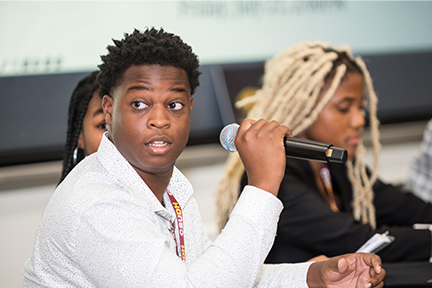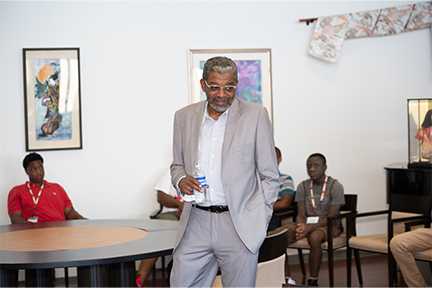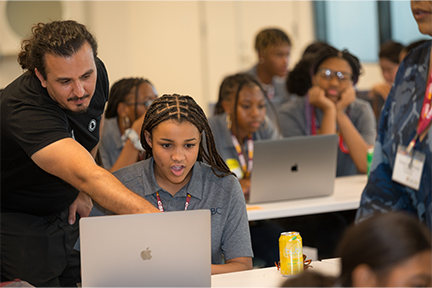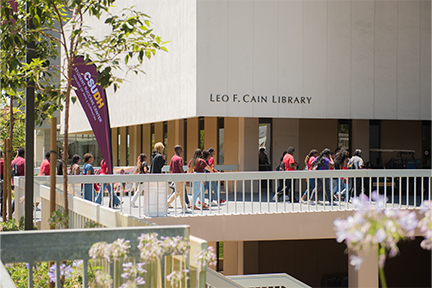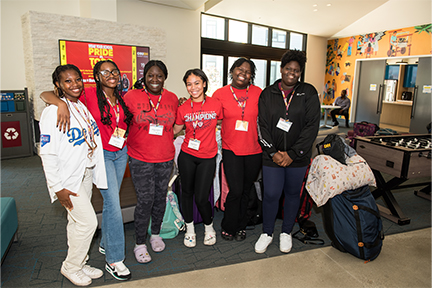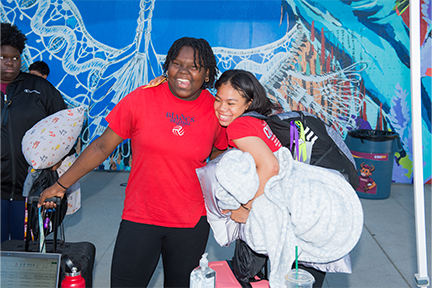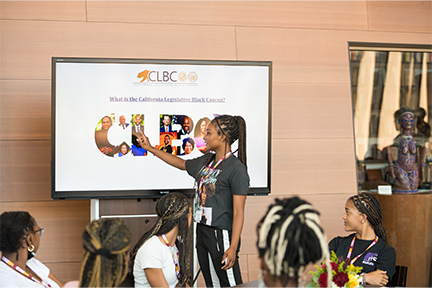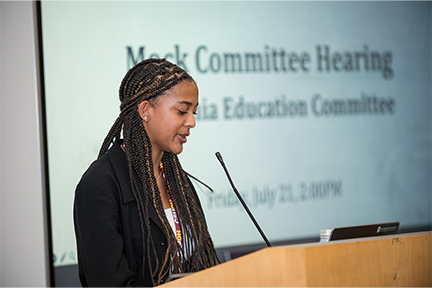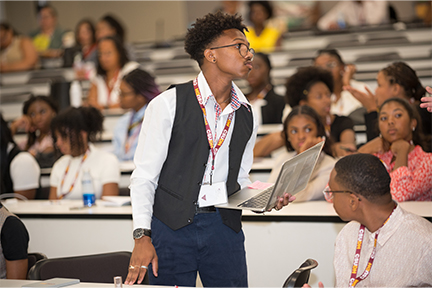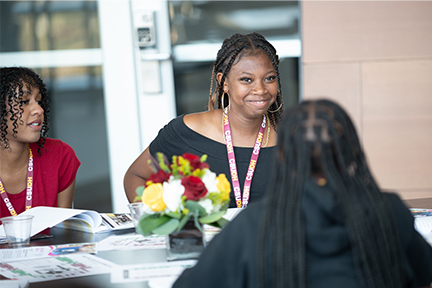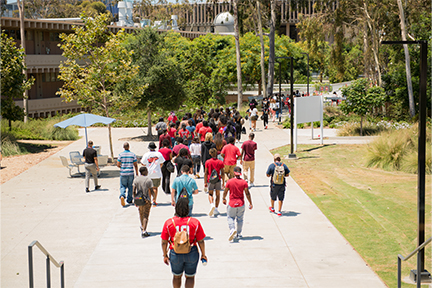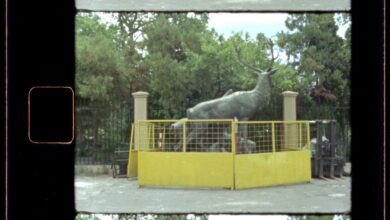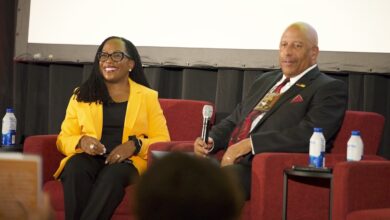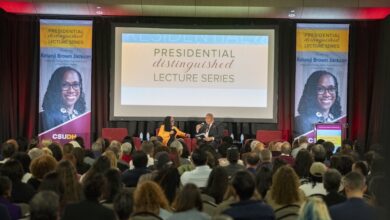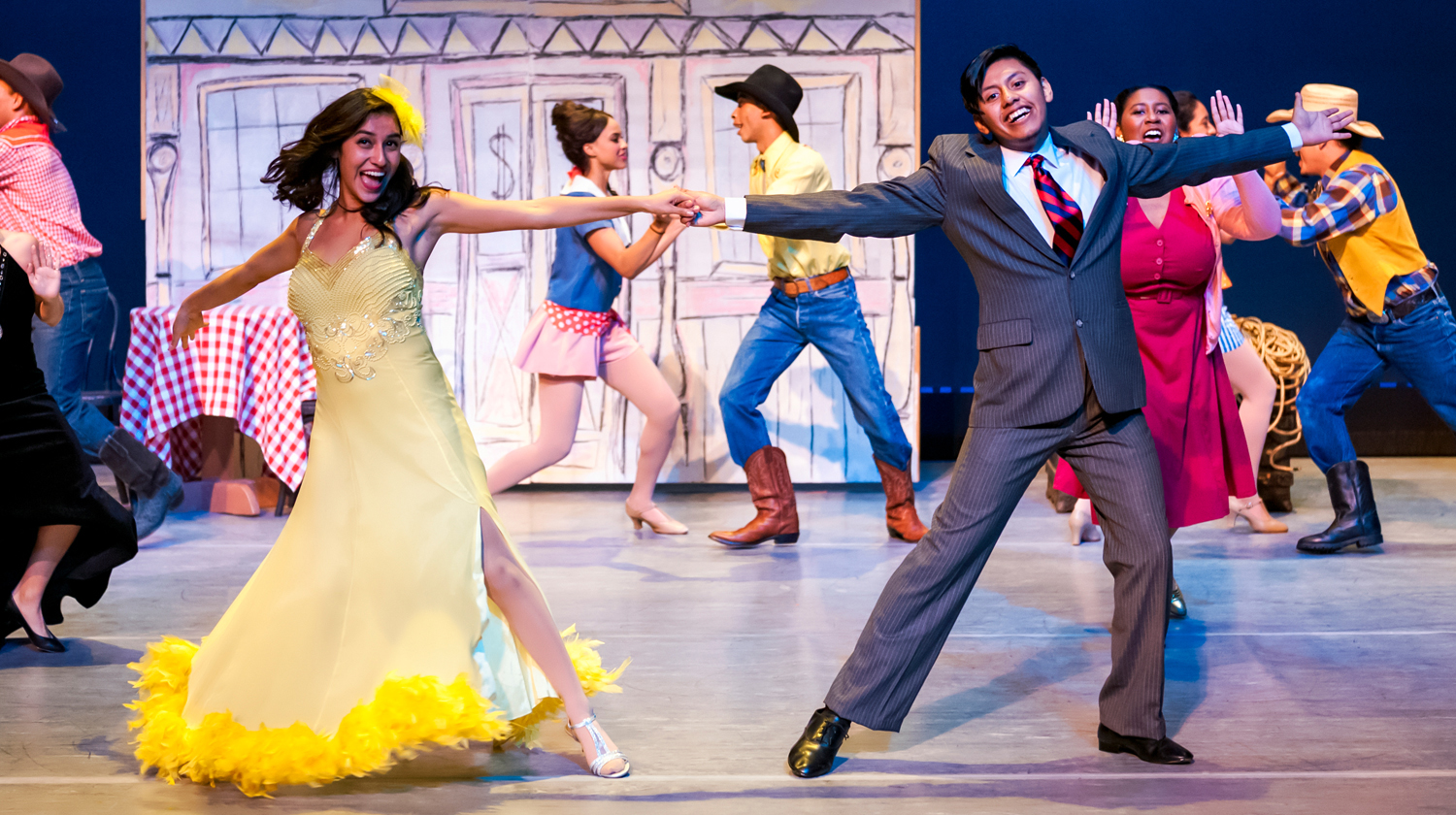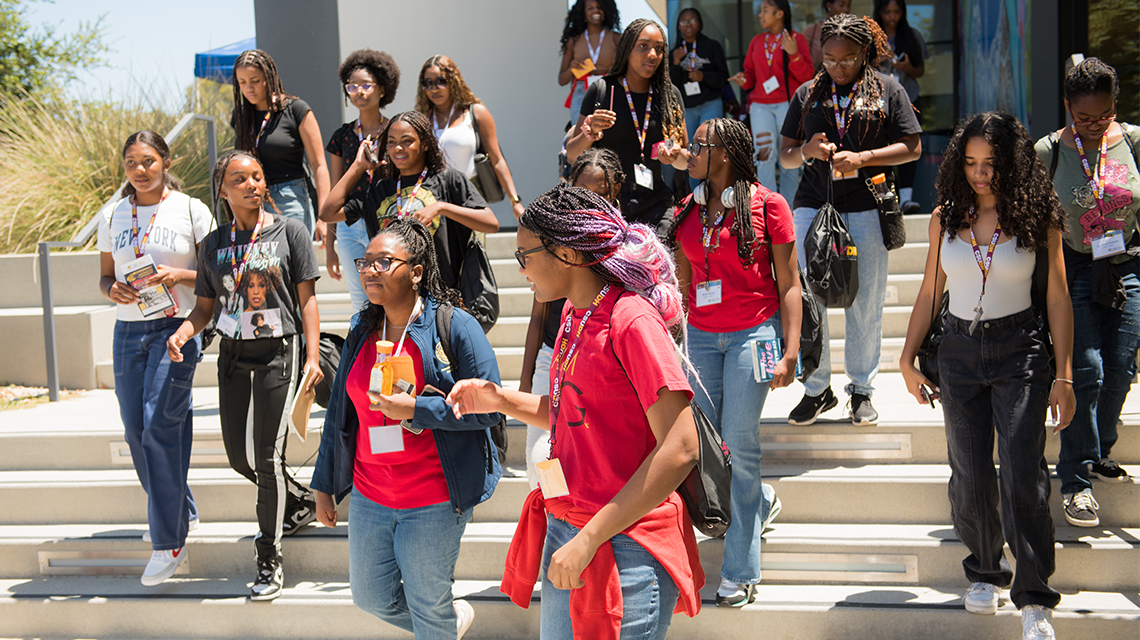
The intersection of public policy and individual liberty provided the substance of this year’s African American Leaders for Tomorrow (AALT) program as 50 high school students from across the state joined educators, business leaders, and elected officials for a four-day leadership conference on the CSUDH campus.
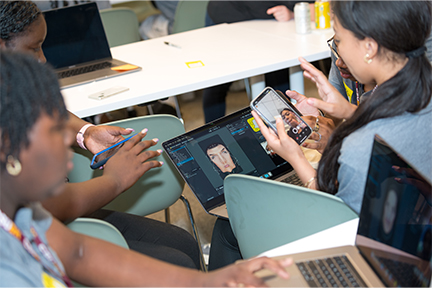
The California Legislative Black Caucus (CLBC) created the program to equip young men and women of color with the tools and experience necessary to excel in higher education and to become leaders within their communities and beyond. Sen. Steven Bradford, Vice Chair of the CLBC, welcomed the AALT scholars at the event’s kick-off dinner.
“This program is about preparing the next generation of leaders, but many of you are already leaders in your own communities,” Bradford said. “It’s a privilege to help support your growth and enrichment with the AALT program, our premier youth civic engagement initiative.”
In partnership with CSUDH and the Mervyn Dymally African American Political and Economic Institute, the CLBC offers qualifying students an immersive college experience that includes residency and meals on campus, workshops, a mock legislative session, and off-campus activities, including a visit this year to the Santa Monica campus of Snap, Inc., the company that owns Snapchat.
“It is only with a well-educated and compassionate workforce that our communities, specifically our underserved communities, can advance to meet the critical needs of our society,” said CSUDH President Thomas A. Parham in his introductory remarks delivered via video on the opening night of the program.
Kyle Sebbern, a senior at Independence High School in Bakersfield, Calif., said his mother convinced him to apply for the AALT program. “I want to be a leader in my community, so this program will help me understand what real leadership looks like,” Sebbern said.
The Dymally Institute was founded in part to help the Black community better discern the impact of public policy on their lives, said Anthony Samad, director of the institute. “We need to study public policy, and we need to disrupt public policy that works against the progress of our communities.”
Students in the AALT program got an up-close look at how bills in Sacramento become the laws that will govern their lives at the state and local level. Groups were assigned to serve as the authors of a bill, lobbyists, and committee members for the relevant committee to which the bill was being presented.
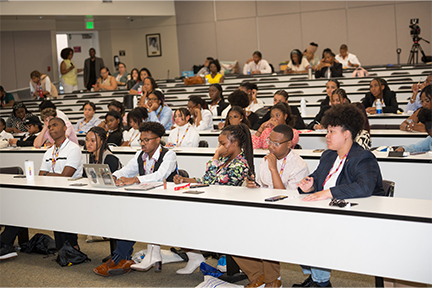
Guided by members of the CLBC, students evaluated, argued for or against, and then publicly voted on a real assembly bill–in this year’s program, it was AB 252, or the College Athlete Protection Act, which, if enacted, would set the stage for student-athletes in California to receive money from their schools based on the revenue generated by their teams.
The mock hearings are a regular fixture of the AALT program and provide a dynamic and collaborative context for students to become familiar with the legislative process, said Marvin Richardson, a political consultant for California’s Senate Democratic Caucus and an AALT program volunteer.
“Laws are what govern the world we live in. Too many young people don’t understand the law or how it affects them until it affects them,” Richardson said.
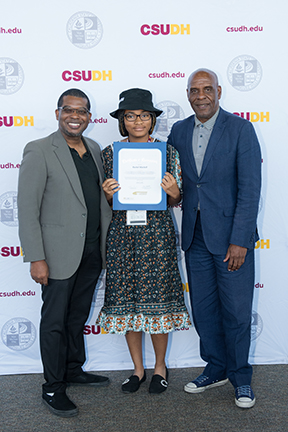
Cedric Hicks, Jr., a Carson city councilmember, graduated from CSUDH, as did his parents, wife, and three children. “Without CSUDH, so many people in this region would lack access to higher education.” He added that the AALT program not only gives participating students an inside look at what university life looks like, but affords them access to elected officials.
“Young people–particularly those from the underserved communities that CSUDH caters to–rarely have access to the local officials elected to serve them. This event brings everyone together and allows students to explore different futures by directing questions to the officials that help shape the policies and laws that affect their lives.”
Rachel Mitchell is a junior at Leuzinger High School in Lawndale. She said the debate over AB 252 during the mock hearing really opened her eyes to how complicated the legislative process can be and the impact it can have. “There is so much more nuance to the process than I expected. During lobbying and debate, I realized that there’s never just one right or wrong answer. You have to consider so many different factors.”
Taking civic responsibilities seriously is a chief aim of the AALT program, said Samad, adding that it isn’t always easy to convince young people of the importance of engagement. “The biggest obstacle is helping them understand that they have a role to play in determining what their quality of life, and the quality of life in their communities, will be.”
That quality of life is always under threat, said Samad. “Racism and racial inequalities cannot be an abstract conversation. Racism is structural. These structures have been set up to capture African Americans from a deficit model, whether you’re talking about inadequate school resources, discrimination in housing, or economic subjugation.”
Samad added that equipping young people with the knowledge to confront these issues effectively is an essential part of the AALT program.
“The California Legislative Black Caucus recognizes that it needs a training bench, so to speak, so the next generation can make up for historical inequalities. The hope is to train enough people to understand how democracies work and not to be reactive to the laws and structures that control their lives, but to transform them in a way that is fair and equitable for everyone.”
See more of the AALT leadership conference in the gallery below. All images by Kerry James Photography.
